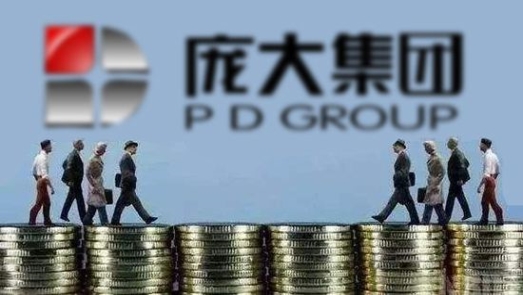没想到对方的一句thank you就能让我暴露年龄了......
当对方说thank you,你会如何回答呢?
大多数接受国内英语教育的我们可能会条件反射,“you're welcome”脱口而出,而这也是大多数年龄大些的美国人会用的经典回答......
(Via网络)
外国博主直接拉开战场,讨论用哪句话回答对方的thank you更好:
“No problem” vs “you’re welcome”
千禧一代表示对于“you're welcome”是拒绝的
(via 网络)
You almost never hear a Millennial say “you're welcome.” At least not when someone thanks them. It just isn't done. Not because Millennials are ingrates lacking all manners, but because the polite response is “No problem.” Millennials only use “you're welcome” sarcastically when they haven’t been thanked or when something has been taken from/done to them without their consent. It's a phrase that's used to point out someone else's rudeness.
你几乎不会听到一个千禧一代的年轻人说“you're welcome.”,特别是在别人感谢他时。不是因为这群年轻人忘恩负义且粗鲁,在他们看来答以“No problem.”更有礼貌。千禧一代只会将“you're welcome”讽刺地用在他们没有得到感谢或是别人未经他们同意拿走他们的东西等方面时。因此这是一个用来指出他人粗鲁行为的短语。
“No problem" vs "you are welcome"(via Tumblr)
(via 网络)
小编在这想对插队的朋友们说一句
(via 网络)
但婴儿潮出生的一代人更青睐“you’re welcome”,超级不爽“no problem”一类的答复,语言的代沟就这样产生了 。(Baby boomer,a person born during a baby boom , especially after the Second World War。是(尤指第二次世界大战后)生育高峰期出生的人,放到当下就是美国55-73岁的人群。)
Baby Boomers, however, get really miffed if someone says “no problem” in response to being thanked. From their perspective, saying “no problem” means that whatever they’re thanking someone for was in fact a problem, but the other person did it anyway as a personal favor. To them “You’re welcome” is the standard polite response.
然而,婴儿潮一代人会对别人回复“no problem”感到非常恼火。在他们看来,说“no problem”意味着无论他们在感谢什么都是为了造成的那个麻烦,但帮助者这么做无论如何都是出于个人的意愿。这一代人认为“you’re welcome”才使标准的礼貌回答。
“No problem" vs "you are welcome"(via Tumblr)
(via 网络)
然鹅不只是美国的年轻人,Buzzfeed的一篇文章指出,其他国家的人们也认为“you’re welcome”听上去很粗鲁。比如在大洋彼岸的英国,人们总觉得这句话带着点傲慢态度。而问题的关键更在于……
But the problem with “you’re welcome” isn’t sarcasm. Well, not the whole problem. Not th
at this is the intention, but "you’re welcome” can sound like you're taking the polite gesture from the thanker, and bringing attention to your kindness. To the unaccustomed ear, it can sound like “yes, I did you a favour, you should be thankful.”
但问题的关键不完全是这句话带有讽刺的感觉。而是“you’re welcome”这句话本身会让人误以为你故作姿态,不习惯的人听了会觉得你像是说“是的我帮了你的忙,你本就该感激我。”
Here's Why "You're Welcome" Is Not The Right Response To "Thank You"(via Buzzfeed)
(via 网络)
HuffPost的一篇文章也来补了一刀,表示
“You’re welcome” has continued to act as a sort of comic brag or sarcastic remark.“You’re welcome”已经长期被大家经常用作滑稽的自夸或是讽刺。2016年的迪士尼电影《海洋奇缘》中可爱但自大的半神角色毛伊就有一首浮夸的配乐叫作“You’re Welcome”。
(via GIPHY)
大家现在知道“You’re welcome”为什么这么不受待见了吧
(这一届礼貌用语真的很苛刻)
(via 网络)
那么“You’re welcome”到底为何沦落至此呢??
小编总结了报道中提到的三大原因:
大家都想表现得谦虚


 卡儿酷雷云荣获汽车电子科学技术
卡儿酷雷云荣获汽车电子科学技术 为何汽车不推广指纹解锁?原因在
为何汽车不推广指纹解锁?原因在 车享五周年 移动互联网+汽车行业
车享五周年 移动互联网+汽车行业 2018款奔驰E级购车指南 选配丰富
2018款奔驰E级购车指南 选配丰富 宝兴县公安局强化危化品车辆检查
宝兴县公安局强化危化品车辆检查 湖南常长高速客车起火26人死亡
湖南常长高速客车起火26人死亡 一财研选|汽车行业基本面边际改
一财研选|汽车行业基本面边际改 2019年安徽省职业院校技能大赛(
2019年安徽省职业院校技能大赛(
 证监会定性“恶意做空” 大股东增持等方案将
证监会定性“恶意做空” 大股东增持等方案将 北京设定2300万人口上限 通州副中心两年见成
北京设定2300万人口上限 通州副中心两年见成 李克强:中国经济长期向好的基本面没有改变
李克强:中国经济长期向好的基本面没有改变 恒丰银行陷多重质疑 逼停员工持股计划
恒丰银行陷多重质疑 逼停员工持股计划



